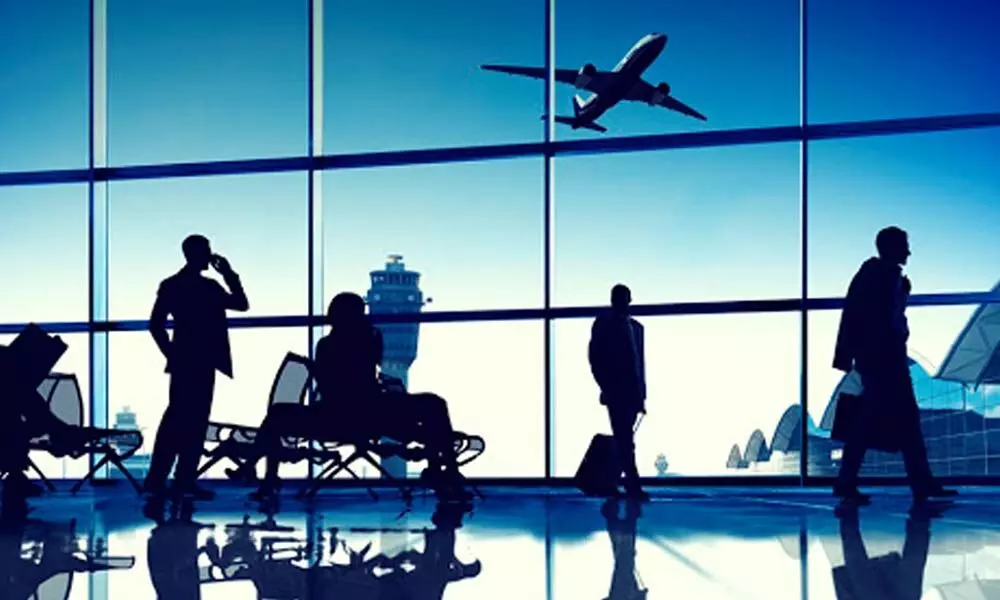Duty-free, travel retail clock 9.9% growth
Sales rise to $86.4bn in 2019
image for illustrative purpose

The International Air Transport Association (IATA) recently revised downwards its passenger traffic forecast for this year, predicting a drop of 66 per cent versus 2019
Duty-free and travel retail sectors continued to grow in recent years until the outbreak of Covid-19. In 2019, Travel Retail finished on a positive note for duty-free and travel retail, with total global sales reaching $86.4bn based on the latest data from Generation Research. That represents an uplift of 9.9 per cent versus 2018.
However, this growth swiftly turned negative as coronavirus spread at the start of the year, with few predicting a fast recovery following weaker demand for air travel in August and September.
Globally the world has changed which has impacted the duty directly since March of this year.
"The International Air Transport Association recently revised downwards its passenger traffic forecast for this year, predicting a drop of 66 per cent versus 2019. That seems entirely possible based on the Airports Council International assessment that international passenger traffic fell by 64.5 per cent year on year during the first half of 2020.
According to US aircraft maker Boeing it will take five years or longer to recover to the long-term trend, as airlines around the world cut their fleets and bring forward the retirement of other planes.
In the meanwhile, new possibilities are emerging in the duty-free and travel retail sector. There are new developments in China, which has seen the fastest economic recovery of all global regions since the start of the pandemic.
The Chinese government's success in bringing the pandemic under control and the strength of the subsequent economic recovery has helped fuel the substantial rise of sales to Chinese travellers in off-shore and downtown duty-free stores.
The surge in domestic tourism has increased footfall at these outlets. But it is the government's new duty-free policy for Hainan island, added to the development of new free trade ports, that is playing a decisive role. In July, the annual shopper allowance was more than tripled to around $14,000 for purchases made on the island. The range of goods available there has also been expanded to include wines and spirits and tobacco, along with smartphones, laptops and other high-demand items.
In addition to these changes, the award of three new duty operating licenses this year, two of them for Hainan, is encouraging an element of competition among operators. The results have been impressive. In the four months ending 31st October, more than 1.7 million people visited Hainan's duty-free stores, a rise of 59 per cent on the previous year. Total duty-free sales were over three times the 2019 figure at $1.81bn."
With the pandemic bringing e-commerce to the fore in markets around the world, however, while online and digital would be "crucial" to the industry's short- and long-term development, bricks-and-mortar will continue to play a vital role. While the pandemic is having a devastating impact on duty-free and travel retail business, operators should continue to adapt and "not retreat from the progress made over the last decade in order to prosper when traveling is back to normal.
Shoppers on the other hand are unquestionably more sensitive to responsible consumption now and sustainable values must be an integral part of the shopping experience for retailers to remain relevant. It's estimated that the pandemic has accelerated the shift to digital by around five years. Even when analysing the findings about the importance of the retail experience, we see that shoppers are looking for a more integrated experience, which combines both physical and digital – they want to experience in-store and purchase online.
The 'immediacy' trend regarding delivery, with the growth of same-day delivery, click-and-collect options and the curb-side pick-up model we see in high-street retail, will need to be mirrored in travel retail with a greater emphasis in the future on out-of-store pick-up locations between security and the gate or even seat-delivery on board the aircraft.
The greater emphasis on digital is even likely to put the "inflight" retail offer on a more level playing ground with airport retailers, especially given that airlines benefit from having direct access to the passenger data including highly valuable information such as travel class, frequency and whether a passenger is travelling with their family.
All stakeholders are being forced to rethink their business models and revenue strategies. If Airlines start to capitalise on their unique asset and invest more in the data management for ancillary revenue purposes, this could be a game changer for the industry.

